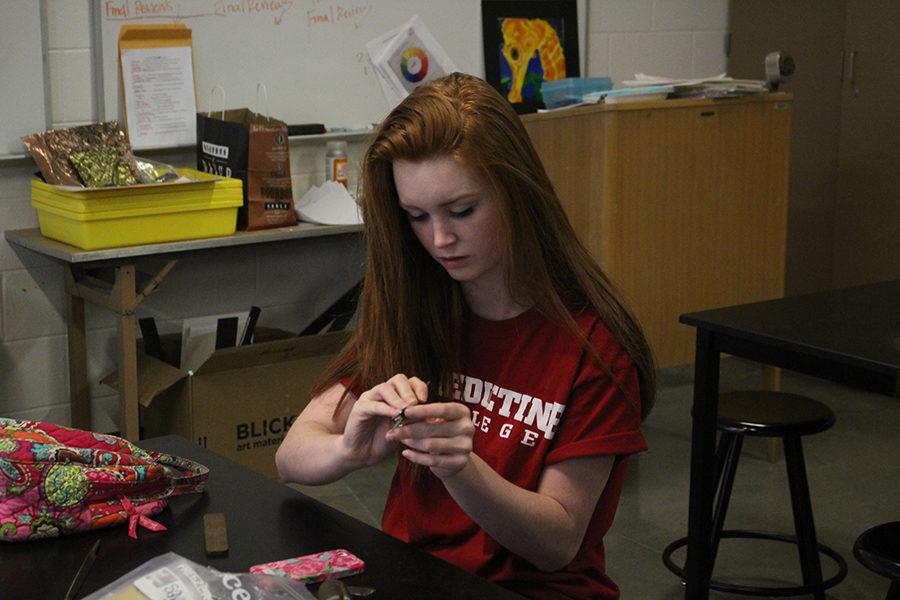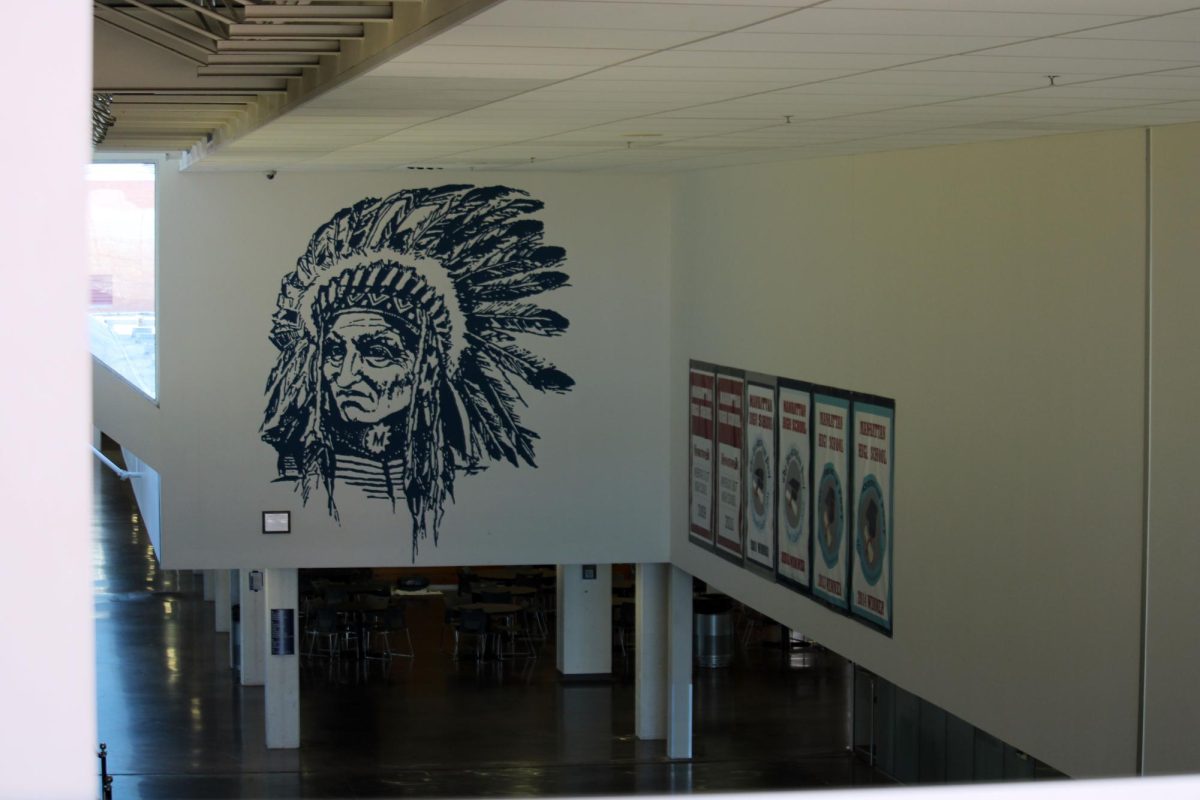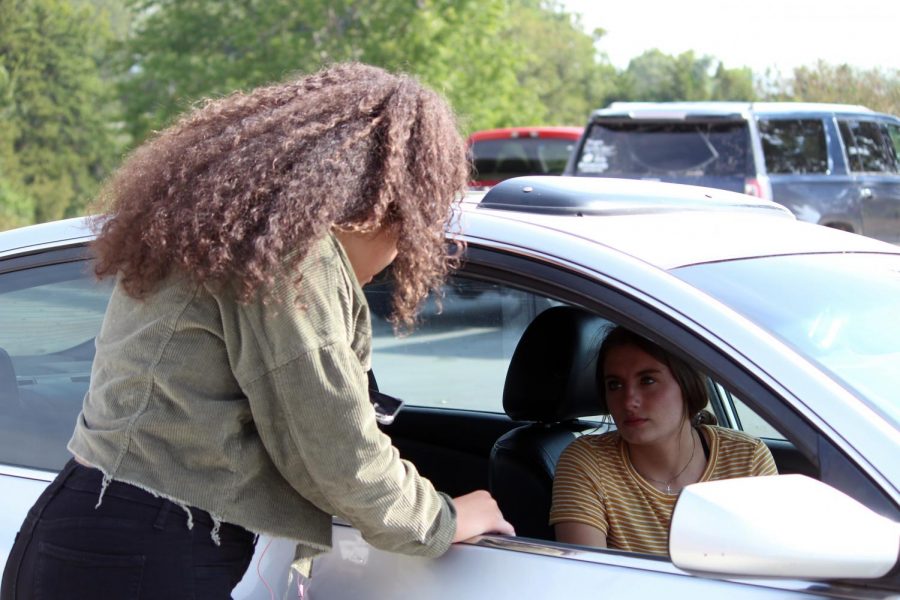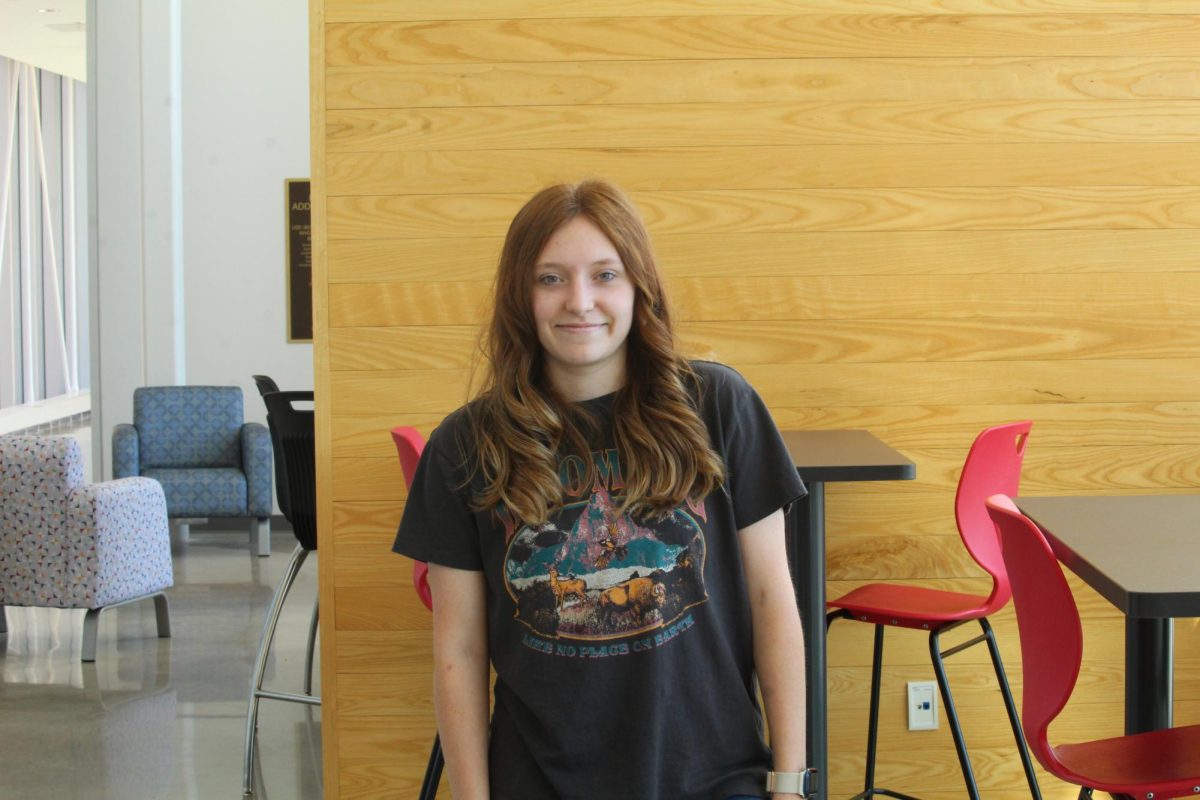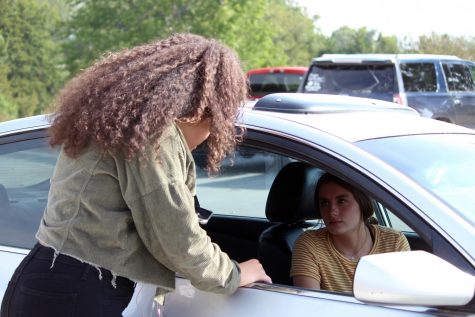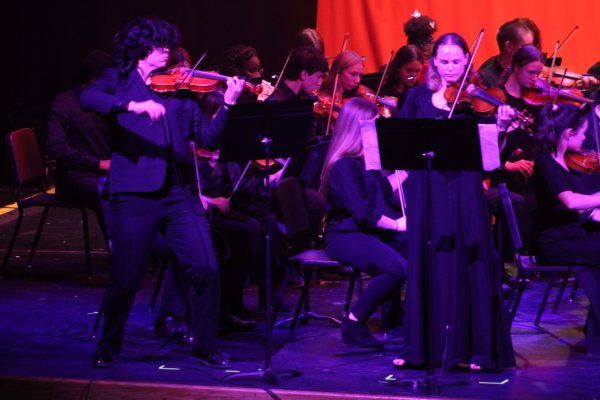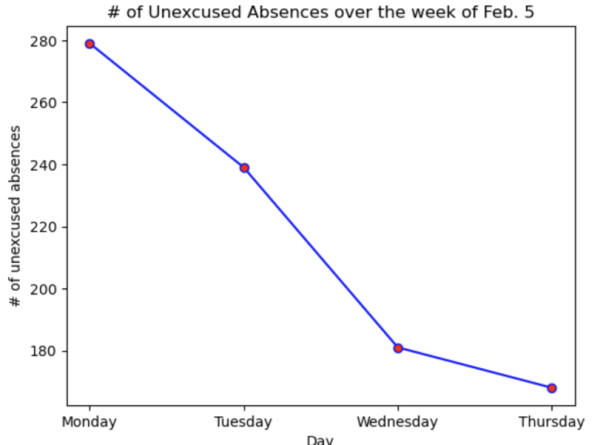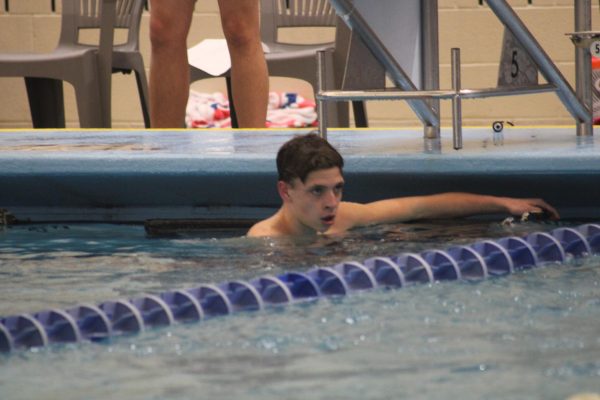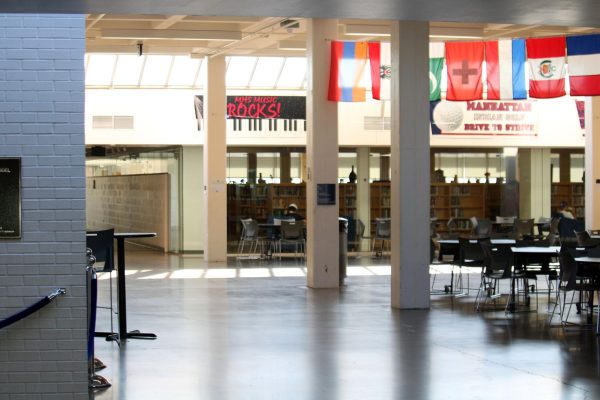Teachers break the norm by giving projects
Savannah Barron works on her jewelry in her 7th hour jewelry class. Barron is one of the freshmen that come up to the west campus to work on their projects
May 16, 2016
Finals are around the corner, which means cramming a whole semester’s worth of knowledge into about a week for most classes.
However, there are some teachers who opt not to give a regular ‘pen and paper’ final. Some teachers decide to assign projects instead.
The reasons teachers opt not to give a test vary, from matching the class contents to not needing that teaching style.
“I personally did not like having to memorize a lot towards the end. If there was clear purpose for it, it made sense,” English teacher Ben Sutherland said. “But in my classes it did not seem like there was much purpose in doing that I would prefer something as low-key as possible and they could enjoy it.”
Taking regular finals aren’t always the best options for project-based classes, where it is harder for students to pinpoint a certain step or procedure of action. Teachers have realized this, and decided to give their students a project instead of a test final.
“With the computer-based classes I feel it really gives them a chance to show me what they can do,” CTE teacher Tiffany Anderson said, “because in the computer class they’re on the computers all the time and if I just had questions on the final I think it’s a lot harder for them to — like it’s easier for them to do it on the computer than to think about the question. It’s more applicable for them.”
One of the perks that teachers have noticed is that students can learn from each other on projects or presentations.
“[English 10 class is] writing expository papers, then they’re going to give presentation,” Sutherland said. “Hopefully, it will a good experience for them. As a teacher too I’m always learning about what is the best experience and what makes for the best opportunities for kids.”
Students enjoy the freedom that projects offer over the few possibilities that a test limits them to.
“I think tests are really strict on what [the teachers] think you know and projects you can kind of show what you know,” junior Sierra Sparbanie said. “I think with projects you have more freedom and time and space to show what you know.”
As with a theory-based class, there is more to do with a project versus a ‘pen and paper’ final.
“For, like, physics, the project that I am doing is designing a robot,” sophomore Jacob Clanton said. “So instead of taking a test that shows how well I know my physics, I am teaching myself how to program a robot and just applying that learning more. Whereas a test it’s just knowing the answers.”


